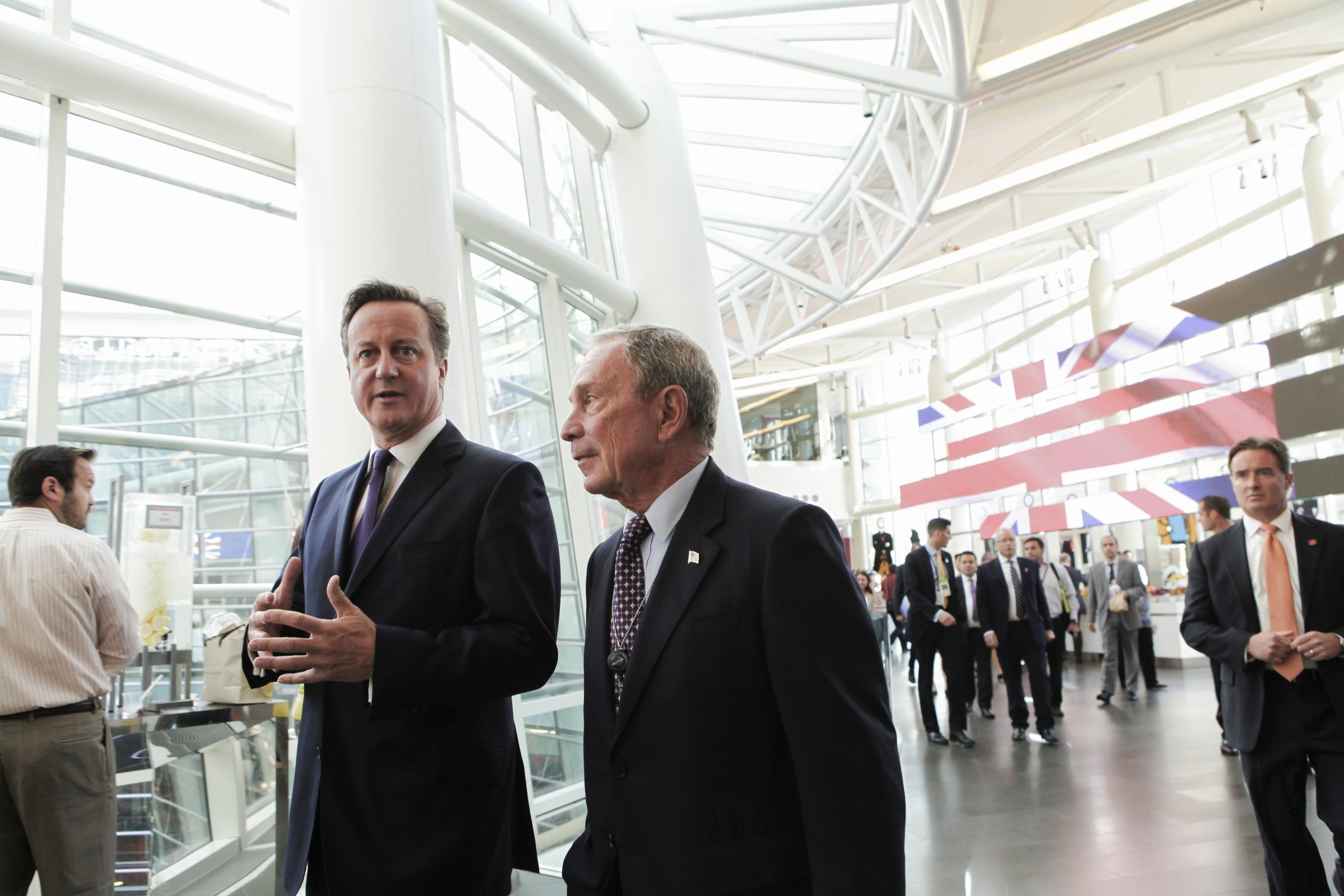
It is safe to say that Elizabeth II’s 12th and current Prime Minister is not her favorite Prime Minister — this week at any rate.
On Tuesday, as news crews filmed David Cameron chatting with Michael Bloomberg ahead of a meeting with business leaders in New York, microphones captured the British Prime Minister in boastful mode. He described calling the Queen to tell her that Scottish voters had rejected independence in the Sept. 18 referendum. “The definition of relief is being the Prime Minister of the United Kingdom and ringing the Queen and saying, ‘It’s all right, it’s OK’,” Cameron said. “That was something. She purred down the line.”
This was, at the very least, an exceptionally serious breach of constitutional protocol. The Queen has always held regular audiences and conversations with each of her Prime Ministers, starting in 1952 with Winston Churchill, acting as a politically neutral sounding board or “a sort of a sponge,” as she memorably put it herself in the documentary Elizabeth R.
Anything that is said during these audiences and conversations, by the same convention, is deemed private. “Everyone can come and tell one things and some things stay there and some things go out the other ear,” the sovereign explained in the 1992 TV film. “And some things never come out at all.”
Of all the things she would have wished never to come out at all, the Queen’s personal views on Scotland’s decision will have been high on the list. “There was a very determined effort to maintain her impartiality” during the run-up to the Scottish referendum, says one Buckingham Palace source. The Queen is something of a veteran of independence referenda in the 16 Commonwealth Realms over which she reigns, having seen Quebec twice weigh splitting from Canada, and Australia vote against becoming a republic in 1999. In every case, the Queen has carefully protected her neutrality, often keeping her feelings to herself even behind closed doors.
The source says the palace went to “great lengths to communicate the Queen’s own unimpeachable position.” A statement by the Queen released after the result, far from taking sides, emphasized the need for reconciliation: “As we move forward, we should remember that despite the range of views that have been expressed, we have in common an enduring love of Scotland, which is one of the things that helps to unite us all.”
But Cameron’s indiscretion was exacerbated by his use of the word “purred” to describe’s the Queen’s reaction. It’s hard to imagine a less appropriate verb, one that simultaneously reduces the Queen to the status of a pet and suggests that the Prime Minister has been able to reduce her still further, to a fluffy ball of pleasure response. Anyone who has spent time around the Queen knows that she is not strokeable, literally or figuratively. Touching her is an act of lèse majesté, as Michelle Obama discovered. Nor is she susceptible to flattery. She is dry, wry, humorous and guarded.
Her studied lack of bias extends to her Prime Ministers. She is reputed to have harbored a soft spot for Labour Prime Minister Harold Wilson and there’s an obvious warmth between her and John Major, her ninth Prime Minister, a Conservative who after the death of Princess Diana in 1997 was appointed a special guardian to Princes William and Harry. Queenologists — students of the sovereign’s micro expressions, able to spot and interpret a slightly more downturned mouth, a hint of scorn in the royal eyes — suggest Her Majesty didn’t much like Margaret Thatcher and remained immune to Tony Blair’s charms. She has seldom looked more uncomfortable than at a party on New Year’s Eve 1999, forced to hold hands with Blair on one side and her husband Prince Philip on the other as everyone sang “Auld Lang Syne” to welcome the new millennium.
Cameron once expressed the ambition to be the “heir to Blair.” He meant he hoped to emulate Blair’s success in transforming his party and delivering three thumping election victories, but this week Cameron echoed — and surpassed — Blair’s ability to discomfit the Queen. According to the BBC, Cameron said he was “embarrassed” and “extremely sorry” about his remarks to Bloomberg; the BBC also reported that he had been in touch with Buckingham Palace and planned to apologize to the Queen in person at their next meeting.
The Buckingham Palace source says such an opportunity is unlikely to present itself before October, when the Queen returns to London. Until then, she remains at her Scottish home Balmoral, enjoying views across a country that now has an insight into her views of its independence debate. Her views of the Prime Minister who provided that insight can only be surmised.
More Must-Reads From TIME
- Dua Lipa Manifested All of This
- Exclusive: Google Workers Revolt Over $1.2 Billion Contract With Israel
- Stop Looking for Your Forever Home
- The Sympathizer Counters 50 Years of Hollywood Vietnam War Narratives
- The Bliss of Seeing the Eclipse From Cleveland
- Hormonal Birth Control Doesn’t Deserve Its Bad Reputation
- The Best TV Shows to Watch on Peacock
- Want Weekly Recs on What to Watch, Read, and More? Sign Up for Worth Your Time
Contact us at letters@time.com